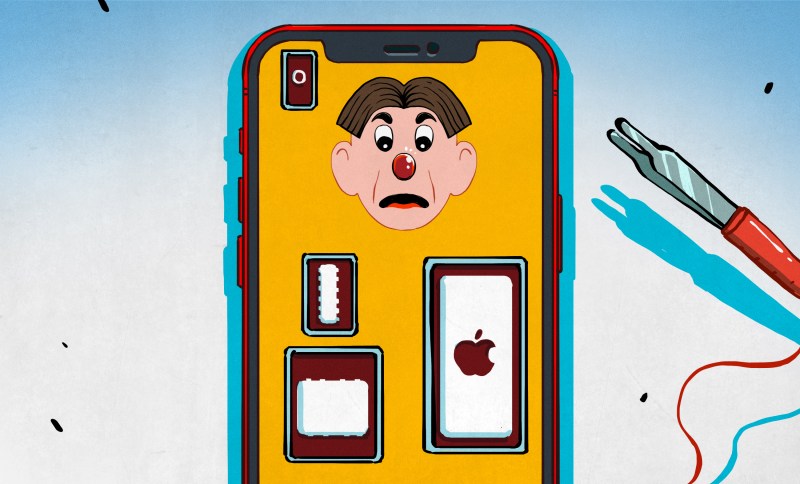In what could be a big step forward for consumer rights, the Texas Senate recently unanimously voted to pass HB 2963, which references the “Diagnosis, maintenance, and repair of certain digital electronic equipment”. If signed by the governor, this would make Texas the ninth US state to enact such a law, and the seventh pertaining to consumer electronics. Interestingly, this bill saw anti-parts pairing language added, which is something that got stripped from the Oregon bill.
Much like other Right to Repair bills, HB 2963 would require manufacturers to make spare parts, documentation and repair tools available to both consumers and independent repair shops. If signed, the act would take effect in September of 2026. Included in the bill are provisions to prevent overcharging for the provided parts and documentation.
As for how useful this is going to be for consumers, [Louis Rossmann] had a read of the bill and gave his typically eloquent thoughts. The tl;dw is that while there is a lot of stuff to like, this bill leaves open potentially massive loopholes (e.g. assemblies vs parts), while also carving out massive exemptions, which leaves owners of game consoles, boats, cars, tractors, home appliances, etc. stranded with no new options.
















Hopefully it turns out better than the New York State R2R bill that looked great, passed the State House nearly unanimously with total bipartisan support, and then was completely nerfed at the last minute by Gov. Hochul following big tech lobbying. But I’m not holding my breath.
I almost thought Texas was about to pass a good bill.
Unrelated, but this is possibly the first time I could not put a YT video on 1.5x speed because the presenter is already going at 1.5x!
Guess my earlier comment didn’t get through. Just hoping this works out better than the great NY State right to repair Bill that was nerfed by the Governor at the last minute just before signing, after pressure from lobbyists, despite being passed nearly unanimously through the statehouse in it’s original, far reaching and strong version.
Exemptions on tractors, not much effort to guess who paid to make that happen – John Deere.
Living in Texas has proven that there are no bills passed that benefit the average citizen. Every bill is engineered to benefit big businesses or supporters of the current legislators. Doubt things will change due to the legislators creating laws that will keep their party in office.
Honestly I’d prefer to keep pairing stuff – I’d sooner my stuff doesn’t get nicked than that I could repair it (but likely won’t, because I tend not to break consumer electronics, and because by the time it’s broken it’s usually well out of date), but can’t because someone nicked it and broke it down for parts.
If someone can suggest an alternative that keeps right to repair whist effectively preventing thefts, that’d be great, but the current suggestion of IMEI blocking is a joke.
you ever have your phone stolen?
The pairing isn’t BETWEEN phones/accounts/etc, it’s between the components inside the phone. It has little to no bearing on the rates of theft, and everything to do with blocking repair.
Pairing makes it so stolen phones can’t be stripped for parts, and locking/encryption prevents the phones themselves from being used. With this stealing phones is fruitless as they have no use.
Pairing stops phones being stolen for parts. Blocking repair is a bonus. (Quite possible it’s the other way around, of course).
There’s a simple solution to this: make parts paring opt-in. That way, if it’s important to you, it’s something that YOU will be able to unlock with YOUR OWN keys.
That’s not a solution at all. If the thief only discovers your phone has its parts paired after they’ve stolen it, you’ve still had your phone stolen. It’s only a deterrent if a thief can be reasonably certain there is no point in stealing a phone because even parting it out is worthless to them.
Perhaps we could approach Right to Repair the same way that lobbyists approached passing new gun regulations over the last century.
Namely, get them to give us an inch, then another inch, then another, ad nauseum, until we’ve finally gotten what we want (as opposed to wanting it all in one bill or even actually making any real compromise).
It may not be as exciting, and it’s certainly not honorable, but if that’s how the game is played, then so be it.
Didn’t work out for the gun grabbers.
Right now blue states are responding to the SC saying ‘no, unconstitutional’ by passing even more unconstitutional laws (e.g. NY).
But that’s just like OK passing ’10 commandments in classrooms ‘laws.
They all know it’s just posturing to please their derpiest population.
That said, ‘repair’ is not mentioned anywhere in the constitution.
They need to find that ‘right’ in the whitespace, not like they haven’t found lots of other rights there.
I’m guessing that in those days the concept that you needed a right to repair your stuff was beyond thinkable.
They also forgot to specify you can’t charge for or forbid breathing air, or observing things with your eyes, or occupying physical space with your body. So that air thing will be next then? (Seeing the other two they covered already these days.)
“According to the WEEE Forum, 5.3 billion phones were thrown away in 2022 alone – this amounts to 169 phones dumped each and every second last year.”
Literal millions of metric tons of phones.
Looked at that WEEE forum website and noticed it was not compliant with EU rules since the only cookie option was ‘accept all’
Assumed it was a US site making a faux pas and then saw they are located in Brussels, Belgium… at heart of the EU.
And they have a ‘key figures’ utility that is ‘members only’
I’m very suspicious of this outfit now.
Excludes cars? What BS. Not to mention that’s an area that supposed to be already covered by rules from the Obama era, though isn’t enforced (looking at you, Tesla. For countless examples of anti-repair and general anti-consumerism.)
Like legislation to ban soda.
We start with freedom. Each law is a step away.